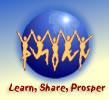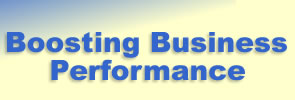Turning Breakthroughs and Mishaps into “Best Practices”
by Adele Sommers
We can measure the success of our organizations to a large extent by how much we learn, absorb, and apply from experience. Such organizational learning can occur either intentionally or accidentally!
Therefore, we can assess the strength of our accumulated wisdom by the way we embrace both planned and unplanned discoveries. Failure to examine the available evidence and information means that we’re destined to repeat any glitches or errors like a broken record.
 For example, you may find yourself reinventing the wheel every time you undertake a new endeavor or perform a task that you have already done before. If so, it means that you’re figuring out from scratch all of the steps to take for everything you do (even if you have done them in the past), getting stuck in the same spots, falling into the same traps, and running into the same problems. For example, you may find yourself reinventing the wheel every time you undertake a new endeavor or perform a task that you have already done before. If so, it means that you’re figuring out from scratch all of the steps to take for everything you do (even if you have done them in the past), getting stuck in the same spots, falling into the same traps, and running into the same problems.
Do you remember the movie “Groundhog Day,” where the characters wake up every morning to relive the same events and encounters from the day before? Thankfully, we can all avoid “Groundhog Day syndrome” — where no one recalls what happens from one day to the next, or ever learns from experience.
This article offers tips on what to do with your breakthroughs and mishaps. The more data you can extract from them to create systems that everyone can follow, the more flexible, robust, and effective your organization will be.
One Explanation for Unplanned Discoveries
Today’s projects and products, especially technology-dependent ones, involve far more unpredictability than ever before in history. Both speed and sophistication are routinely perceived as extremely important, so much so that many companies take enormous risks on short schedules to deliver complex systems to a global market.
But what happens if we try to speed up the schedule without analyzing the tradeoffs? Or work with highly temperamental software systems that contain far more variables than even the most careful users can effectively control? Often, it’s the unexpected things that come back to haunt us — glitches, snafus, oversights, surprises, errors, accidents, and mistakes — that we didn’t anticipate and therefore didn’t account for in our planning.
 At one time or another, we are all struck by “Murphy’s Law,” a maxim that implies that whatever can go wrong will go wrong — especially in complex projects or processes. At one time or another, we are all struck by “Murphy’s Law,” a maxim that implies that whatever can go wrong will go wrong — especially in complex projects or processes.
The legendary account of Edward A. Murphy, Jr. emerged while he was an engineer working for the US Air Force in 1949. At that time, the Air Force was conducting experiments to test human acceleration tolerances. At one point during the project, someone had installed each sensor for a particular experiment backwards.
Murphy then philosophically noted, “If there are two or more ways to do something, and one of those ways can result in a catastrophe, then someone will do it.”
We usually don’t have to look very far to find examples of this observation! But our mission in these instances is to learn something valuable from our accidents and discoveries. This leads us to our next consideration...
Are You Person-Dependent or System-Dependent?
 I’ll bet you have at least a few stellar performers in your organization who don’t cease to amaze your management, colleagues, and customers. (Or, maybe that performer is you, wearing every hat in your solo enterprise!) I’ll bet you have at least a few stellar performers in your organization who don’t cease to amaze your management, colleagues, and customers. (Or, maybe that performer is you, wearing every hat in your solo enterprise!)
It’s great to have such competent and talented people on board, but what exactly drives their success? Is it their own unique way of doing things that almost no one can imitate? Or is it expertise and knowledge built around a repeatable formula that’s spelled out in documented processes? The difference can mean the long-term success or failure of your organization. Why is that?
It’s simple to guess. Let’s say Ms. Star Performer or Mr. Know-It-All gets a better offer down the street, has a bad illness, or goes on an extended vacation. Suddenly that font of wisdom on whom everyone depended disappears at the drop of a hat. Who can competently fill in or take over? If there are no systems or procedures in place to explain how the work gets done, it may be a moot point.
Similarly, when functional groups guess everything as they go along, inventing their handoffs to other groups in “Groundhog Day” fashion, it shows a lack of system dependence. Being person-dependent rather than system-dependent can vastly limit your company’s potential to succeed.
So, what can you do to overcome your organization’s person-dependence?
Develop “Best Practices” to Ensure System-Dependence
As you document discoveries and breakthroughs, the next step is to derive what’s called “best practices.” What is a best practice? It’s like “20:20 foresight” — any procedure, method, or solution that over time has proven itself to be better than any other techniques you were using to do the same thing. You could say it’s the very best way that you, your group, or your organization has found of doing something.
 Why do they matter? Best practices are invaluable because they’re the intellectual assets — the “secret sauce” — that can help organizations remain highly competitive. It’s ideal to institutionalize best practices so that everyone follows them. You could incorporate them into policies, procedures, and/or online task support systems. Why do they matter? Best practices are invaluable because they’re the intellectual assets — the “secret sauce” — that can help organizations remain highly competitive. It’s ideal to institutionalize best practices so that everyone follows them. You could incorporate them into policies, procedures, and/or online task support systems.
One idea is to design a best practice repository that other people can access easily. For example, it could be put on a Web site, in a database, on an intranet, or another highly visible location.
Best practice repositories can substantially reduce the negative effects of attrition on the company’s intellectual assets, which can be devastating. When people leave because they quit, retire, are laid off, or were simply temporary contractors to begin with, the company’s “brain trust” completely vanishes out the door with them unless their knowledge is being documented and made available to others.
In conclusion, learning from experience involves capturing wisdom from planned and unplanned outcomes and experiences. The resulting best practice archive can greatly strengthen your system dependence and ability to respond flexibly and robustly to changing conditions!
Copyright 2020 Adele Sommers
|


